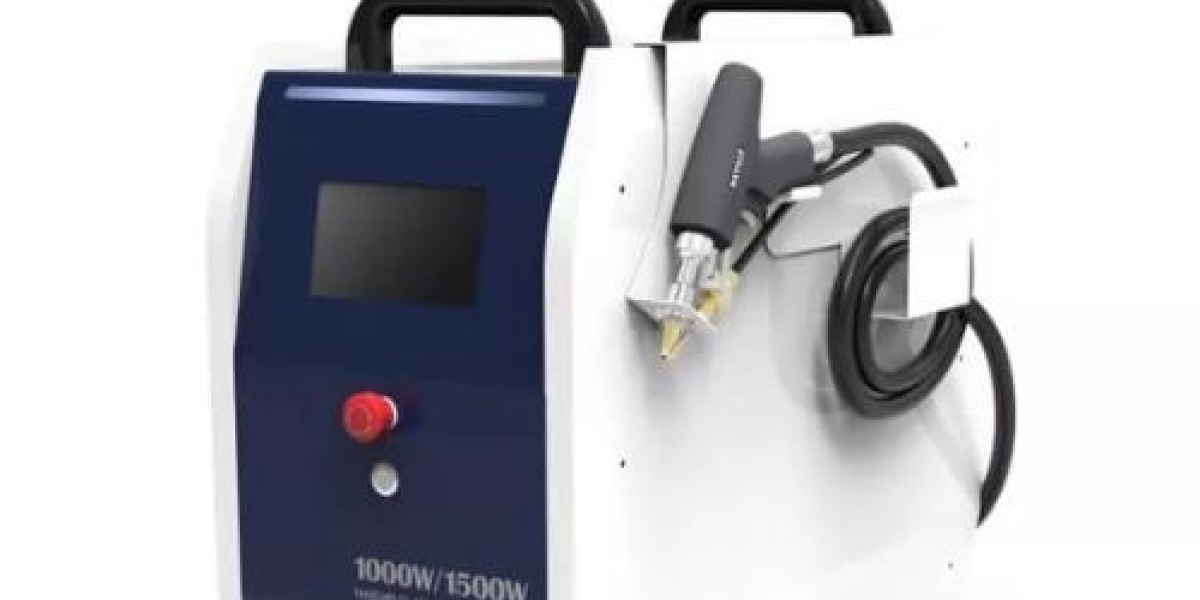Laser welding machine are transforming industries that demand precision, speed, and reliability. These machines leverage focused laser beams to join materials with remarkable accuracy, finding applications in fields ranging from automotive and aerospace to jewelry and electronics. In this guide, we’ll explore how laser welding works, the benefits it offers, and what to consider when choosing the right machine for your needs.
What is Laser Welding?
Laser welding is a process that uses a high-intensity laser beam to join materials by melting the surfaces at the joint. The laser’s power and precision allow for clean, strong welds with minimal heat distortion. This is especially advantageous in working with delicate components or heat-sensitive materials, as the laser’s focused beam limits heat spread to the surrounding areas.
How Does a Laser Welding Machine Work?
Laser welding machines consist of a laser source, optics to focus the beam, and controls to adjust parameters such as intensity, duration, and depth. The laser beam can be either continuous or pulsed, allowing it to be adapted to different material types and thicknesses. Continuous lasers are often used for deep welds in thick materials, while pulsed lasers excel in precision welding for small or thin components.
Types of Laser Welding Machines
Laser welding machines come in several types, each suited for specific applications:
- Fiber Laser Welders: Known for high efficiency and precision, these are commonly used in the automotive and aerospace industries.
- CO₂ Laser Welders: Offering deep penetration capabilities, these are often used in thicker materials.
- NdLaser Welders: Often used for pulse welding applications, they are popular in the electronics and medical fields.
Benefits of Laser Welding Machines
- Precision and Quality: Laser welding offers an unmatched level of precision, making it ideal for intricate work.
- Speed and Efficiency: Laser welds can be completed in a fraction of the time required for traditional welding, increasing productivity.
- Reduced Material Deformation: Due to minimal heat transfer, laser welding reduces the risk of warping or damage to surrounding materials.
- Versatility: Laser welding can join various types of metals and even dissimilar materials, offering flexibility across industries.
Applications of Laser Welding Machines
The adaptability of laser welding machines makes them essential in various industries:
- Automotive: Used for creating sturdy, high-quality joints in car bodies, engines, and other parts.
- Electronics: Ideal for welding small, delicate components without damaging sensitive circuits.
- Medical Devices: Perfect for precision-required welds in surgical instruments and implants.
- Jewelry: Laser welding enables jewelers to repair and create intricate designs without affecting the overall aesthetic.
Key Factors to Consider When Choosing a Laser Welding Machine
Selecting the right laser welding machine depends on your specific needs and industry requirements:
- Material Type and Thickness: Different materials and thicknesses require varying laser types and intensities.
- Welding Speed and Power Output: Consider the power level and speed required for your production volume.
- Ease of Use and Automation: Some machines come with automation capabilities, which can streamline large-scale production.
- Maintenance and Longevity: Ensure that replacement parts are accessible and that the machine’s maintenance requirements align with your operational goals.
Future of Laser Welding Technology
As industries continue to demand high-quality, efficient welding solutions, laser welding technology is advancing rapidly. Emerging technologies such as AI integration and automation are enhancing laser welders' efficiency, making them even more adaptable for high-precision tasks. This evolution is expected to open new possibilities, allowing even more industries to leverage laser welding for complex applications.
Conclusion
Laser welding machine represent a blend of precision, versatility, and efficiency, making them indispensable in modern manufacturing. Their ability to create clean, strong welds with minimal heat damage has positioned them as a top choice across industries. As technology progresses, laser welders will likely continue to push the boundaries of what’s possible, transforming industries with high-performance, adaptable welding solutions.



